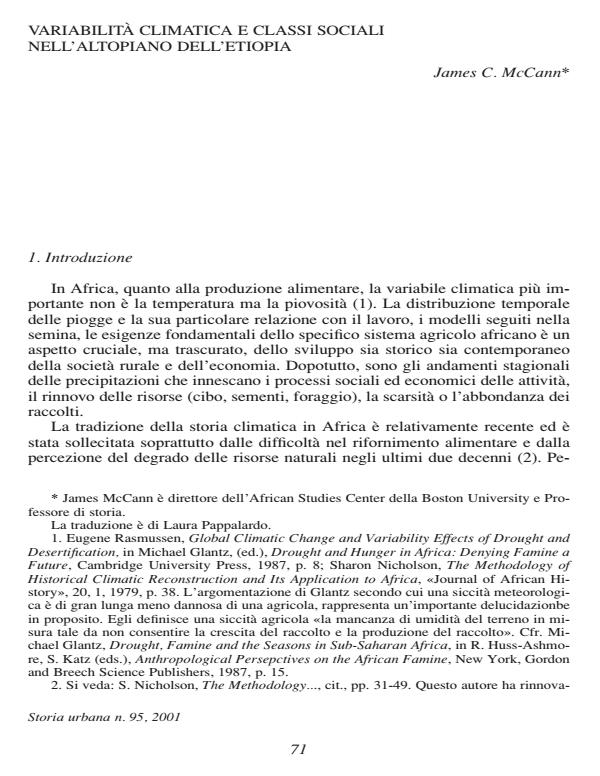Variabilità climatica e classi sociali nell'altopiano dell'Etiopia
Journal title STORIA URBANA
Author/s James McCann
Publishing Year 2002 Issue 2001/95
Language Italian Pages 22 P. File size 86 KB
DOI
DOI is like a bar code for intellectual property: to have more infomation
click here
Below, you can see the article first page
If you want to buy this article in PDF format, you can do it, following the instructions to buy download credits

FrancoAngeli is member of Publishers International Linking Association, Inc (PILA), a not-for-profit association which run the CrossRef service enabling links to and from online scholarly content.
Perceptions of the relationship between climate and history in historiographic studies of Europe, America, and Africa have changed substantially over the last three decades. With regard to Africa, much concern over climate as a factor in economic and political change came in the wake of the 1968-72 Sahelian drought and the 1984-86 East African drought. But the first attempts to apply climate data to historical issues represented a false start, since they tried to establish a direct relationship between climate and human activity. Recent research points to a relationship between global climate phenomona (such as El Nino) and African patterns of drought. More recent emphasis in African history has also focused on patterns of social response to seasonal patterns during the year that have conditioned social and economic institutions. There is now a new generation of environmental scholars on Africa who do not focus directly on climate but rather consider it as a feature that affects a wider set of factors within the natural world.
James McCann, Variabilità climatica e classi sociali nell'altopiano dell'Etiopia in "STORIA URBANA " 95/2001, pp , DOI: